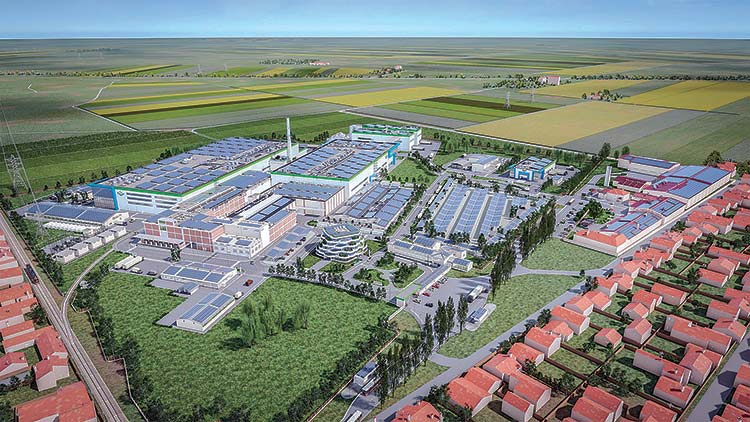On the site of Subotica’s former ’29. novembar’ factory, start-up ElevenEs – part of the multinational Al Pack Group that operates in the aluminium packaging and processing industry – is building the first major factory for LFP batteries in Europe.
The project is also receiving significant support from EIT InnoEnergy, the most active global investor in the area of sustainable energy in Europe, in the low-carbon development sector, which has engaged in the project as an important facilitator and investor.

The adaptation of existing production facilities and the construction of new ones, along with the installing of equipment, will unfold over the course of the next year; pilot production will commence at the start of 2023, while commercial production is expected to be launched in 2024, announces Perović.
ElevenEs, an industrial development project of the multinational Al Pack Group, which specialises in aluminium processing and has already spent 25 years operating on the packaging market, has developed its own technology for the production of lithium-iron-phosphate (LFP) batteries. After two years researching and developing LFP batteries, the company recently opened a modern research & development centre in Subotica, where a team of international engineers and scientists works.
Batteries based on LFP technology, unlike regular batteries, don’t contain cobalt and nickel, which makes production cleaner and more sustainable. These batteries have a lifespan that’s several times longer, are safer, deliver more power faster and are primarily intended for electric cars, buses, trucks, forklifts and other vehicles, as well as for energy storage linked to solar power plants and wind farms.

The first battery factory in Europe to use this technology will be built on the site of Subotica’s former giant ’29. novembar’ factory. The complex will extend over an area of 30 hectares, with facilities occupying 160,000 square metres. Envisaged capital investments are estimated at around a billion euros, while the investment should reach 550 million euros by mid-2024, excluding investments in development.
Envisaged capital investments are estimated at around a billion euros, while the investment should reach 550 million euros by mid-2024
The factory itself will be constructed in several phases over the course of the next six years. The initial period will see the creation of a plant for the production of electrodes and the assembly and electro-formation of cells, while production activities will expand over time to encompass the production of other input raw materials, including cathode material. Within the scope of the complex, there will also be a recycling centre for battery production waste.
Following completion of the development of the first product line, a green “mega factory” will be created and will produce 300 MWh annually. After two years, production will be expanded to 8 GWh, while after 2028 and the finalisation of the complete investment, production is expected to reach 16 GWh annual. To clarify these capacities, 16 GWh equates to more than a billion of the batteries that are found in contemporary mobile phones, while translated into vehicles – it would equate to enough batteries for almost 330,000 fully electric cars. Although this type of production is highly automated, there will certainly be more than 1,800 people employed in development and production at that juncture.